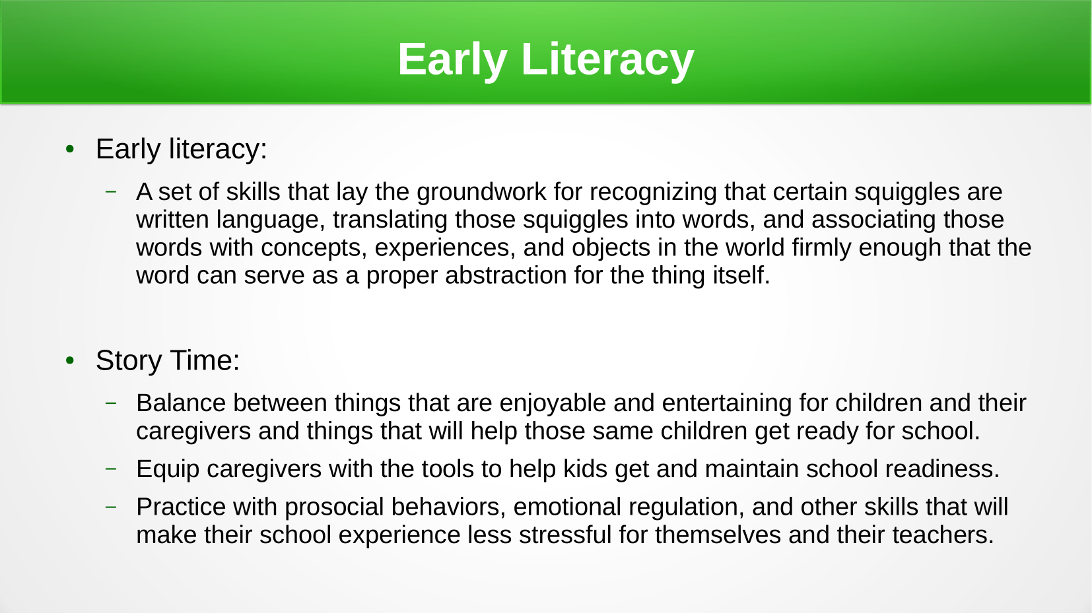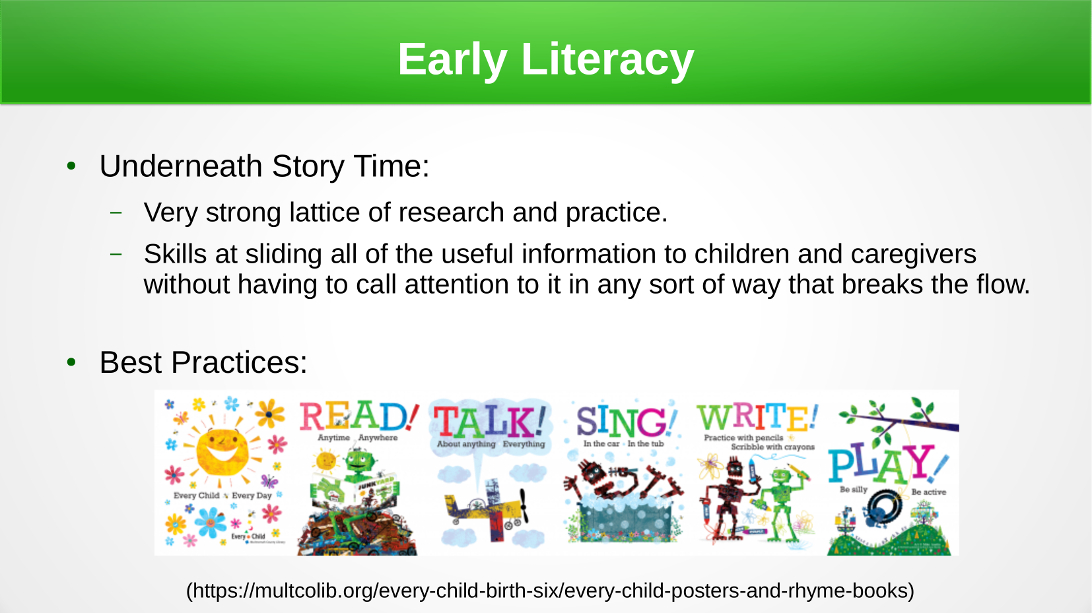Early Literacy

Story Time
Time to peel back the curtain a bit on the magic that is the public library Story Time. Public Librarians are forever attempting to balance between things that are enjoyable and entertaining for children and their caregivers and things that will help those same children get ready for school and equip their caregivers with the tools to help them get and maintain school readiness. The good thing is, for the most part, public librarians can mash the two together and create things that are both fun and educational in their Story Time programs.
Underneath each librarian's Story Time is a very strong lattice of research and practice that informs their presentations and allows them to slide all of the useful information to children and caregivers without having to call attention to it in any sort of way that breaks the flow. The focus of Story Time is to develop early literacy, a set of skills that lay the groundwork for recognizing that certain squiggles are written language, translating those squiggles into words, and associating those words with concepts, experiences, and objects in the world firmly enough that the word can serve as a proper abstraction for the thing itself, while also giving practice at making squiggles that can do the same thing for others. Done well, it means that kids who go to Story Time enter school ready to read on a Kindergarten level, and have practice with prosocial behaviors, emotional regulation, and other skills that will make their school experience less stressful for themselves and their teachers.
The process by which one acquires language is pretty similar, regardless of whether it is a primary language, a secondary language, or a computer programming language. Yet, the older we get, the more we have to fight our lack of neural plasticity and the less likely it is that we're going to be in an immersive environment where we will be able to pick up the language natively through practice and feedback. Considering all of this research that's helpful in getting children ready to read, why not try and apply its knowledge to the domain of getting beginning developers ready to program?

Five Practices
I'm taking as my inspiration the Five Practices of Early Literacy, and if you'd like to see a great poster of those practices, you can go down to the Multnomah County Library that's only a few blocks away from here and see it at work (and possibly catch a program or two). Those of us on looking in digitally will need to go see it at the Multnomah County Library's Website, where you can obtain your own copy. (Unfortunately, that page has since expired, but there are other posters available from ALSC about how babies need words. They're not as good as the poster.)
The order will be a bit different than on the poster, but these five practices, done vigorously, are likely to produce a roubst language experience for anyone, young or old.